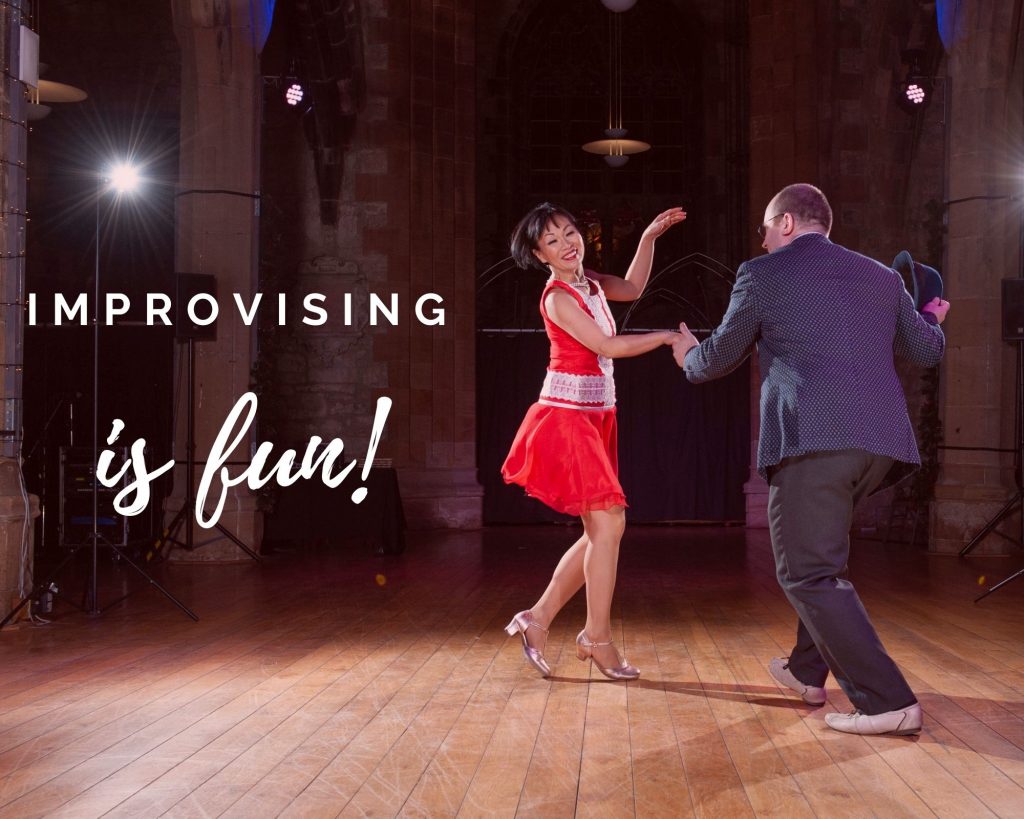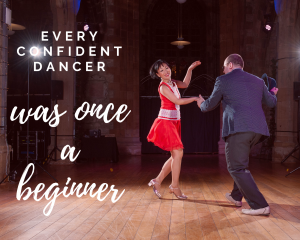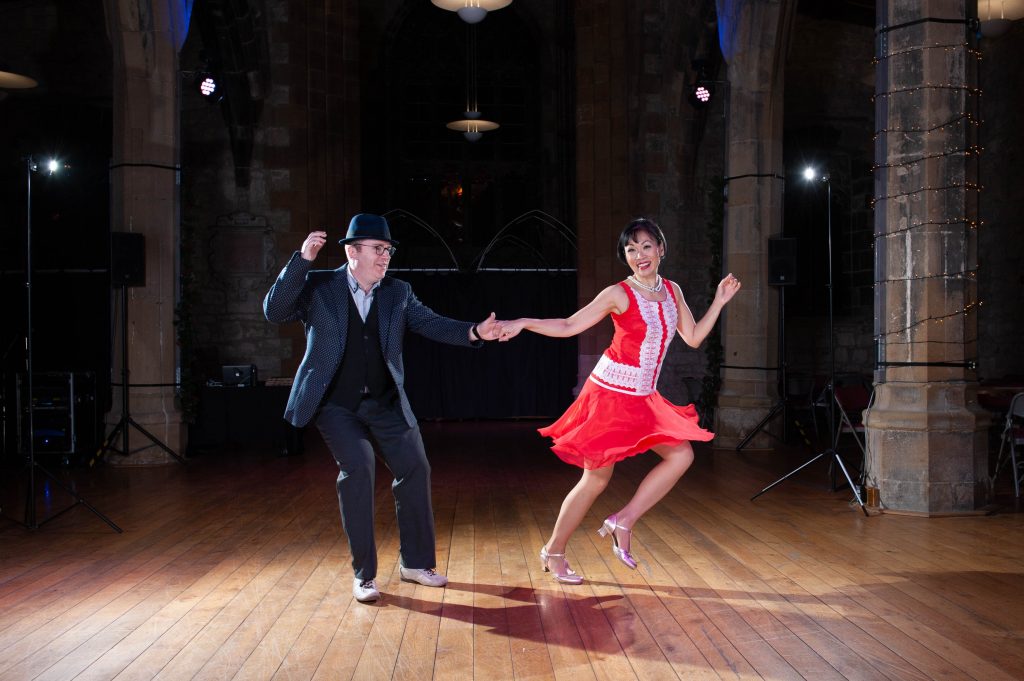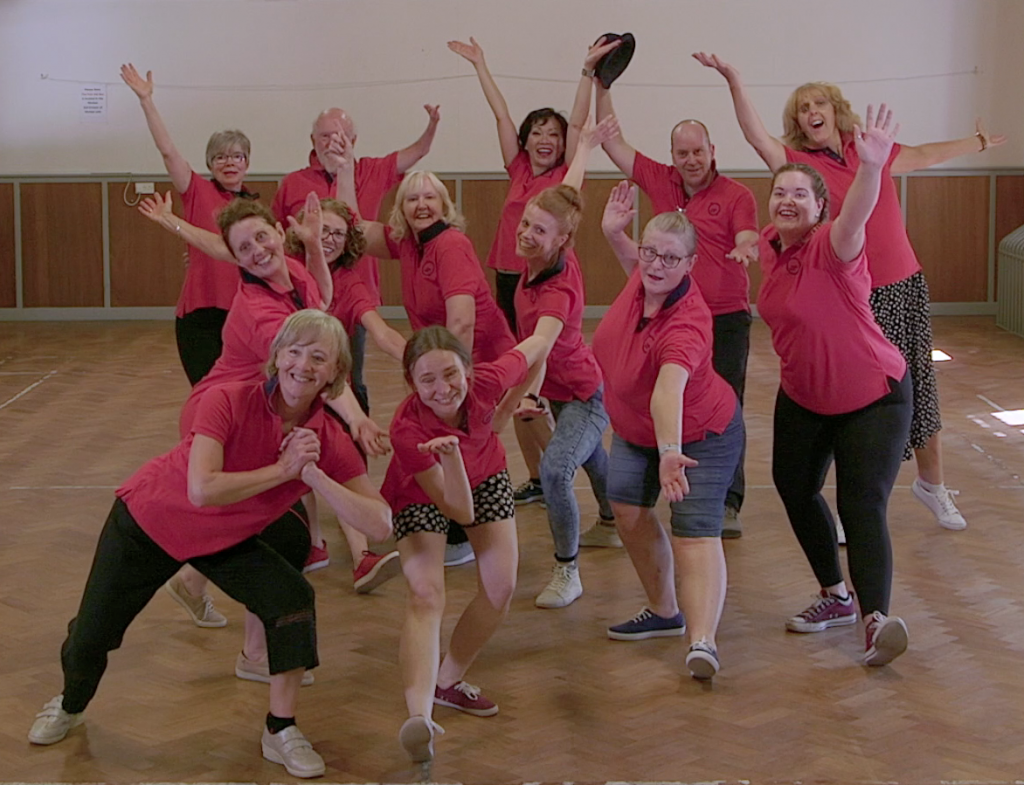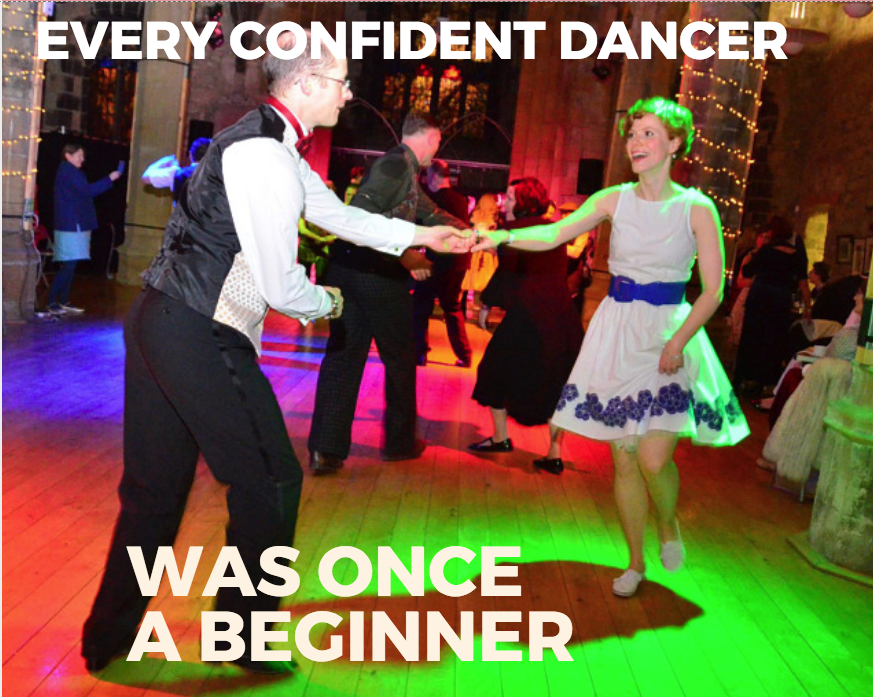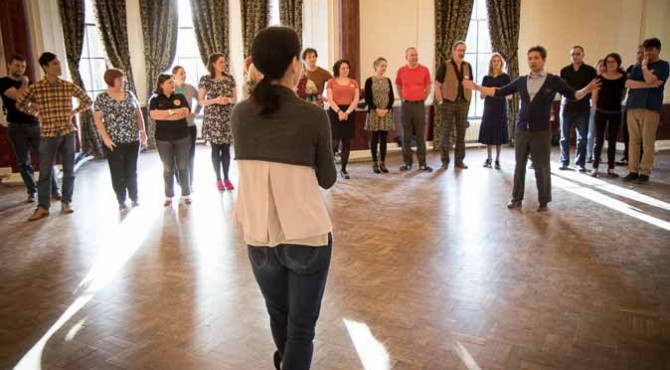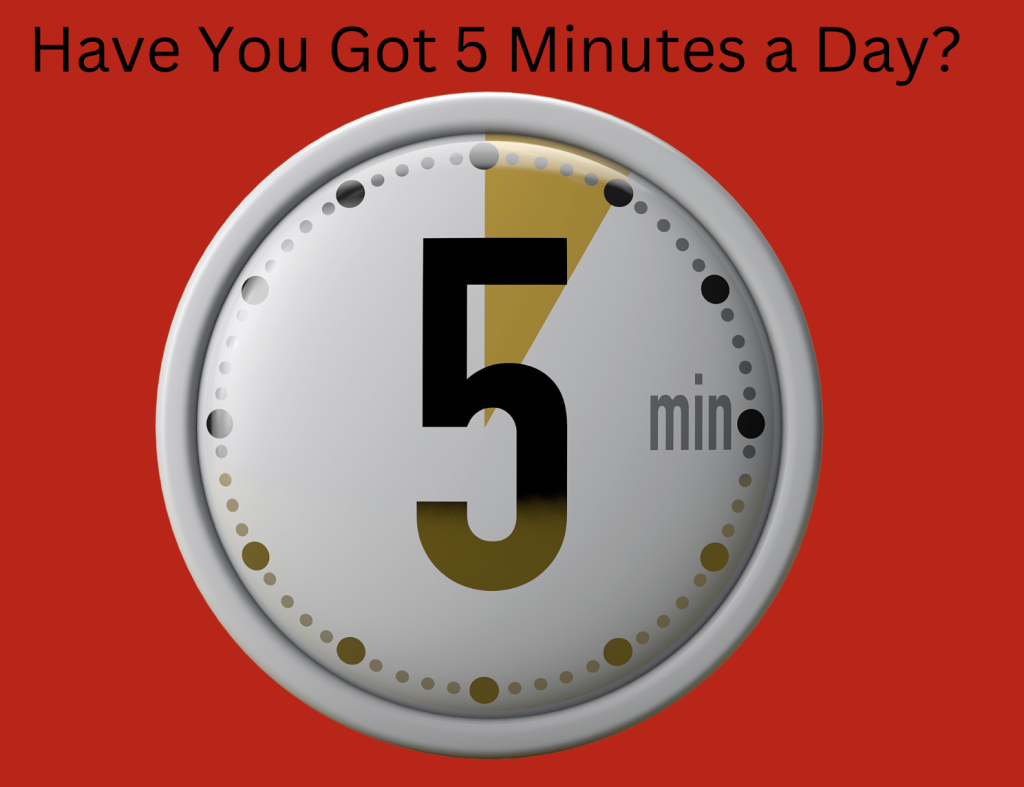
It’s that time of year again, the nights are drawing in and Strictly Come Dancing is back on Saturday nights. Of course, I love watching it for entertainment, but it’s very interesting to watch it from a dance teacher’s point of view too.
In Week 1, head judge Shirley Ballas had this to say to every contestant / celebrity:
“The work is about to start! Work ethic is key. Pay attention to your teacher. And when you’ve done a long day, do some more. And the more practice you do, the better you will become.”
Is Learning to Dance All About Hard Work?
Learning to social dance is not the same as learning intensively in a short space of time for a reality TV contest or competition. Anyone watching Strictly might worry about how hard learning to dance might be. Or it might have the opposite effect. People who learn to dance for social reasons might think ‘well I’m not aiming to be on a show, so I don’t need to practise.’
Well yes you can take small steps towards learning the moves by just turning up. But if you want to get a real buzz and a huge amount of joy from your dancing, it’s about more than just turning up.
Bring an Attitude of Fun
Shirley Ballas is right when she talks about hard work being the key to becoming a great dancer. But I think that getting the most from your swing dance classes is about prioritising fun.
Is it fun learning to swing dance at Lindy Jazz? Yes! However, hard work is optional. It depends on how far you want to take your dancing. That’s the beauty of it, you choose your own journey!
Always start with an attitude of fun, that is very important. The next layer of the foundation is PRACTICE. This does not mean you have to practice for hours on end every single day with a view to performing in front of millions every Saturday night like the contestants on Strictly. Though If you can set aside five minutes a day to practice, this will make a huge difference to your dancing progress.
Have You Got 5 Minutes?
Class members often tell me that they can’t remember what they’ve learnt in class. After a busy week of work and family commitments, and not a single minute of dance practice included in their busy schedule, that is no surprise.
If you can find just 5 minutes per day to practice, the improvement in your confidence will be significant. That means you’ll arrive for week 2 ready to move your feet then when you learn about moving your arms in week 3, it will all feel so much easier!
So an attitude of fun is desirable and hard work is optional, but practice is THE must do to get the most out of your Lindy Hop Classes.
Why not take a small step to fitting more practice in to your schedule? Look at your diary, schedule in a 5-minute slot each day, and login to our online videos which are specially recorded to help you enjoy your practice.
And as they say on Strictly, ‘Keep Dancing!’
Want to join the next Lindy Hop course which includes practice videos and lesson recaps? Read more.
